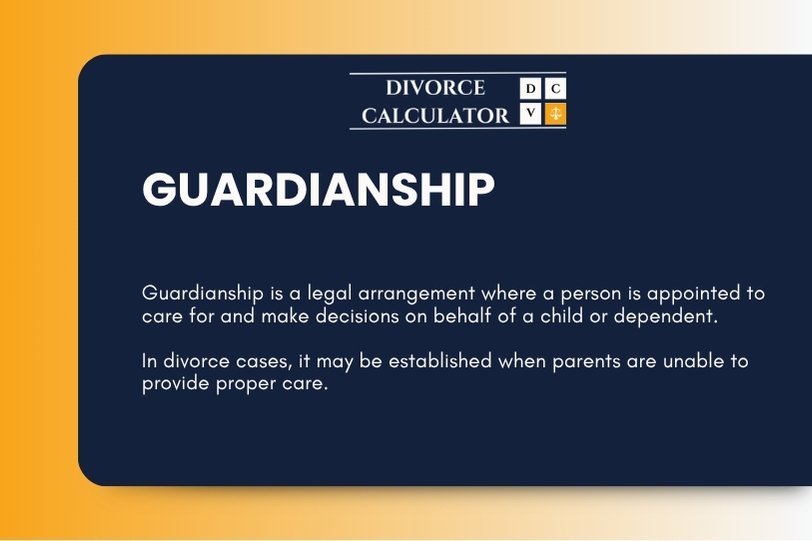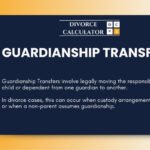Guardianship is a legal arrangement where a court appoints someone to make important decisions for another person who cannot do so independently. Understanding guardianship helps us protect the interests of loved ones who are unable to care for themselves. This topic is especially relevant for families navigating situations involving minors, aging parents, or adults with disabilities.
We often encounter questions about when guardianship is necessary, who can become a guardian, and how the process works. By learning more about these legal responsibilities, we can be better prepared to make informed choices and ensure the well-being of those who rely on our support.
Key Takeaways
Guardianship grants us legal authority to make decisions for individuals who cannot do so themselves. This responsibility covers areas such as medical care, personal matters, and financial management.
We must follow state laws and specific court procedures when seeking guardianship. These requirements vary and often include background checks and reporting duties.
Key Points:
- Guardianship can be temporary or permanent
- Courts supervise our actions as guardians
- We need to make decisions in the best interests of the individual
| Type | Scope | Duration |
|---|---|---|
| Full | All major areas | Long-term |
| Limited | Specific areas | Short/Long-term |
| Emergency | Immediate action | Short-term |
Rights of the ward (person under guardianship) remain protected. We are obligated to encourage their independence wherever possible.
We should keep records of decisions and finances as regular reports may be required. This ensures transparency and accountability in our role.

Why It Matters in Divorce
When we go through a divorce, guardianship becomes a crucial consideration if children are involved. Determining who will be responsible for making decisions about the child’s welfare is not just a legal formality—it’s a core part of our family’s future structure.
The guardianship arrangement affects where the children will live, who will make educational and medical decisions, and how day-to-day care will be provided. Stability and consistent decision-making are important for our children’s wellbeing during a time of change.
Key reasons why guardianship is vital in divorce:
- It clarifies legal rights and responsibilities.
- It can prevent future disputes between parents.
- It aims to put the child’s best interests first.
| Aspects Affected | What Changes in Divorce |
|---|---|
| Living Arrangements | Children may split time between households |
| Decision-Making | Parents may share or split decision authority |
| Parental Rights | Legal rights are formally established |
We need legal clarity to avoid misunderstandings as life moves forward. Without proper guardianship orders, disputes over everyday matters can arise, leading to more stress for everyone involved.
Proper guardianship planning doesn’t just benefit us as parents—it provides the consistency and assurance children need as our family circumstances evolve.
Real-Life Examples
We often encounter guardianship situations in families where a parent becomes incapacitated. For example, when an adult develops dementia, their adult child may petition the court to become a legal guardian to manage financial and healthcare decisions.
In our community, educational guardianship is common when children live with relatives for school purposes. Grandparents or aunts and uncles are frequently appointed to handle enrollment and consent for activities.
Some guardianship cases involve adults with intellectual disabilities. Guardians step in to ensure safety, housing, and access to services.
| Situation | Guardian Role | Typical Authority |
|---|---|---|
| Elderly with dementia | Adult child or close relative | Finance, health decisions |
| Child needs school placement | Relative or family friend | Education, daily care |
| Adult with disabilities | Family member or professional | Medical, financial, personal |
Guardianship arrangements vary widely. Our experiences show that every scenario must be tailored to the individual’s needs. Court involvement helps protect vulnerable people and ensure their interests are represented.
How States Handle Guardianship
States vary in their guardianship processes, legal requirements, and oversight. Major differences exist in court procedures, eligibility to serve as guardian, and methods of monitoring guardians’ actions.
New York
In New York, guardianship cases involving incapacitated adults fall under Article 81 of the Mental Hygiene Law. We must submit a petition to the Supreme Court or County Court to start the process. The court appoints a court evaluator to investigate and report on the person’s condition and needs.
A hearing is usually required. The court decides if a guardian is necessary and defines the guardian’s powers in the order of appointment. New York emphasizes tailoring guardianship to the individual, avoiding unnecessary restrictions. The guardian must submit regular reports to the court regarding finances and care decisions.
Guardians in New York may be family members or professionals. The court monitors guardians closely to prevent abuse or neglect. There are educational requirements for some court-appointed guardians.
California
California guardianship is broken down into two types: guardianship of the person (personal care) and guardianship of the estate (financial matters). The process starts in the Superior Court, and we have to file a petition with supporting documentation.
California law often requires giving notice to relatives and interested parties. A court investigator interviews the proposed ward and may visit the home. The court determines if guardianship is necessary, then either grants or denies the petition.
If a guardian is appointed, they must follow reporting and accounting rules set by the Probate Code. California allows for “limited” guardianships for adults with developmental disabilities, offering more flexibility. Regular court reviews and compliance checks are required.
Texas
Texas guardianship law is governed by the Estates Code. We must file an application in the county probate court, after which the court appoints an attorney ad litem to represent the respondent. An assessment of the alleged incapacitated person is required.
Texas courts require clear, convincing evidence of incapacity before granting guardianship. The court’s order can limit the guardian’s powers or grant full guardianship, depending on individual needs.
All guardians must complete state-approved training before being appointed. Annual accountings and reports are mandatory. Texas courts can require bonds for financial guardians to protect against mismanagement or fraud.
Florida
In Florida, guardianship law is detailed in Chapter 744 of the Florida Statutes. The procedure starts with our petition and may involve an emergency temporary guardian if immediate intervention is required. A three-member examining committee must evaluate the alleged incapacitated person.
The court holds a hearing and decides on incapacity and the need for guardianship. If approved, the guardian is granted either limited or plenary authority, depending on the needs assessed.
Florida requires professional guardians to be registered and comply with strict standards. Court oversight includes mandatory annual reports and accountings. The process emphasizes the least restrictive alternative to safeguard the person’s rights and dignity.
Tips If You’re Dealing With Guardianship
If we’re facing guardianship decisions, it’s important to gather all relevant documents. This includes medical records, financial statements, and any legal paperwork relating to the individual’s needs.
We should consult with experienced legal counsel. A qualified attorney can explain our options, help with filings, and represent our interests throughout the process.
Creating a clear list of responsibilities helps us stay organized. These might involve managing finances, making healthcare decisions, or providing daily care.
When possible, we ought to involve the person under guardianship in decisions. Even limited participation can help respect their preferences and maintain their dignity.
Let’s consider the following quick reminders:
| Tip | Purpose |
|---|---|
| Stay organized | Reduces mistakes and delays |
| Maintain records | Simplifies court reporting |
| Communicate regularly | Prevents misunderstandings |
Being proactive about regular check-ins with medical and care teams allows us to respond to changing needs efficiently.
If disagreements arise, we should try mediation or professional guidance. Resolving conflicts early helps maintain focus on the individual’s best interests.
Frequently Asked Questions
Guardianship procedures and responsibilities differ based on state law and the specific needs of the person involved. We address legal requirements, process details, and important distinctions for several states.
How can one obtain legal guardianship for an adult with disabilities in Florida?
We must file a petition with the local circuit court where the adult resides. The court evaluates the individual’s capacity through examination by a committee of experts, including at least one physician.
After the evaluation, the court may conduct a hearing. If the person is deemed incapacitated, the judge appoints a guardian and outlines their duties.
What are the steps to establish guardianship for a minor in Florida?
We begin by filing a petition in the appropriate circuit court. Notice must be served to interested parties, including the minor if appropriate and both parents if possible.
The court reviews the petition and may hold a hearing to determine the child’s best interests. If approved, the court issues letters of guardianship to the appointed person.
Can guardianship be established without going to court in any jurisdiction?
In nearly all United States jurisdictions, we cannot establish legal guardianship without court involvement. Courts provide oversight to protect the rights and interests of the person in need of a guardian.
Certain temporary custody arrangements or power of attorney can be granted outside the court but do not grant full guardianship authority.
What is the process for downloading and submitting guardianship forms in Florida?
We can access the required guardianship forms through the Florida State Courts website or the local circuit court’s official page. Forms typically include the petition for appointment, the application, and background screening forms.
After completing the forms, we must file them with the appropriate circuit court either in person or through the court’s online filing system, if available.
How do the guardianship laws differ between Louisiana, Wisconsin, Virginia, and Maryland?
Louisiana uses the terms “tutorship” or “curatorship” instead of guardianship and often has specific requirements for those roles. Wisconsin follows a structured, court-supervised process focused on the least restrictive alternatives for adults with disabilities.
Virginia’s courts require a thorough evaluation of the individual’s needs, and Maryland emphasizes regular court reviews and reporting requirements for guardians. Each state stipulates different reporting and oversight standards for appointed guardians.
What are the legal responsibilities of a guardian in the state of Wisconsin?
We are required to act in the best interest of the ward, including making healthcare, housing, and financial decisions if granted authority. Annual reports to the court are mandatory, covering the ward’s condition and the guardian’s actions over the year.
The guardian must seek court approval for significant changes or major financial decisions. All actions should prioritize the autonomy and dignity of the person under guardianship.



